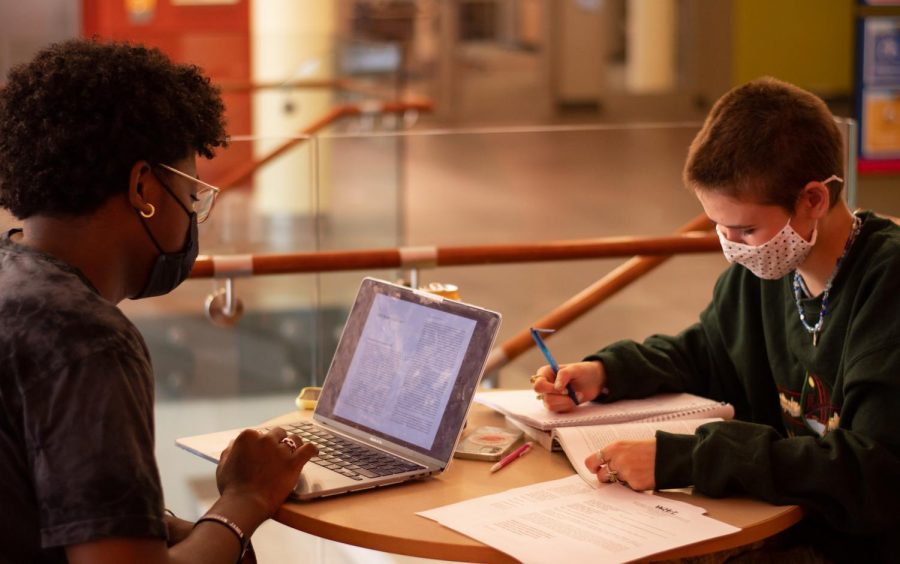Taking a Breather: The Social Impact of Mask Requirements Seattle University
“That’s what you look like?”
This question certainly sounds like a reality TV show tagline, but it is one that has increasingly appeared in everyday life. In a world in which face coverings have become as common as shoes, students have become accustomed to seeing only half of the faces of strangers and friends alike, especially on campus.
Masks are mandated on all parts of Seattle University’s campus, except for outdoors and dining locations, and they play a key role in attempts to adjust to the new “normal.” This sets the stage for an interesting question: how do partially covered faces impact campus culture?
The requirement of masks on campus has altered social interactions. Dorms, which are typically the catalyst of friendships for many first-years, have now become quiet with doors frequently shut.
First-year Psychology major Lucia Wilder understands the rules that have been put in place. Her priority is ensuring campus health, even when it makes socializing a little more difficult.
“I have still managed to meet a lot of the people on my floor, so I just think you have to put in a little more effort,” Wilder said.
Dorm experiences aside, there are still dozens of places on campus where people can congregate, especially in the Student Center. As an area where students sit inside without masks and close to each other, the dining hall poses a unique predicament for maintaining public safety.
First-year Psychology major Madeleine Gee explained that she feels safe removing her mask in the dining hall. Her sense of security comes from the requirements Seattle U has put in place for all students.
“I know that the school does offer vaccines and we’ve had to do testing to be on campus … I definitely feel more comfortable in the dining hall than anywhere else,” Gee said regarding feeling safe congregating in the dining hall.
The classroom dynamic has been altered the most. For many students, coming back to Seattle U is the first in-person schooling they have had since March 2020. Masks are required in all in-person classrooms, an entirely new experience for most of the student body and faculty.
Kira Mauseth, a senior psychology professor at Seattle U who specializes in Disaster Behavioral Health, explained her experience being back in person as an instructor. According to Mauseth, the masks have posed a unique challenge when it comes to picking up nonverbal cues from her students, but she remains in full support of Seattle U’s mask requirements.
“As frustrating or as annoying as [masks] might be, they serve a very important purpose, so it’s very important to recognize that even though it’s annoying at times, the alternative is not an option,” Mauseth said.
There has been student and faculty concern about the impact of face coverings on their ability to socialize. Kathleen Cook, the chair of the psychology department, addressed this concern head-on.
“Surprisingly, there’s some data that shows we are able to read an awful lot about people’s faces by not seeing people’s mouths,” Cook said. “Eyes, eyebrows and foreheads give a lot away about how people are feeling.”
Mauseth echoed Cook’s claim, pointing out that while students might not be receiving the same amount of nonverbal cues they do without masks, they are still able to get enough information to understand how people feel.
“For adults, we have the practice and the experience of taking in pieces of information about how a person is expressing themselves that gives us the information that we need,” Mauseth said.
Masks are certainly not a component many expected in their collegiate experience, but they are critical in working toward reaching the end of the COVID-19 pandemic. For all involved at Seattle U, masks have served as another unique aspect of returning to campus, a claim that the data supports. The evidence is clear: masks create some challenges, but they are nothing that the adult psyche cannot overcome.


